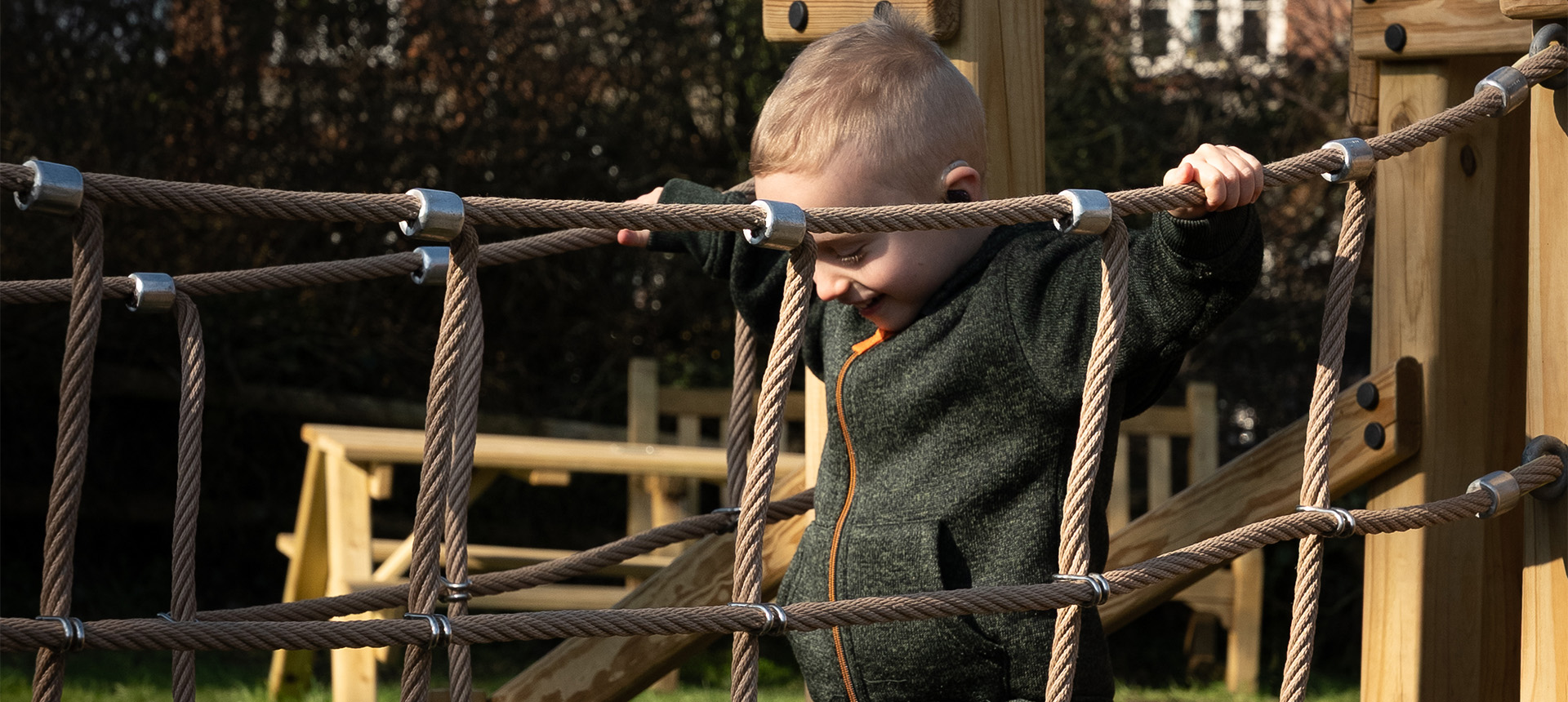16th May
Exploring the 16 Play Types
When we think of children's play, it's easy to imagine swings, slides, and games of tag. But play comes in many different forms, each offering unique benefits for a child's development.
The 16 Play Types help us to understand the wide range of ways children engage with the world. Recognising these play types can inspire us to create more varied play areas - whether in a school, local park, or right at home in the garden.
The 16 Play Types
In no particular order...
- Symbolic Play – Using symbols and actions to represent other objects and ideas e.g., pretending a stick is a magic wand.
- Rough and Tumble Play – Physical, high-energy play that helps children learn about boundaries and social cues.
- Socio-dramatic Play – Acting out real-world scenarios e.g., playing 'shops' or 'families'.
- Social Play – Interacting with others and understanding group dynamics e.g., following rules in a made up game.
- Creative Play – Expressing creativity and using their imagination to create or alter something.
- Communication Play – Using words, gestures, or expressions to play e.g., telling jokes.
- Dramatic Play – Taking on and assigning roles to act out stories.
- Deep Play – Taking risks and facing fears in a controlled environment e.g., heights or bugs.

- Exploratory Play – Investigating materials, textures, or environments e.g., digging in mud.
- Fantasy Play – Creating imaginary worlds, characters, and adventures.
- Imaginative Play – Transforming the ordinary into something imaginative that wouldn’t typically happen in real life e.g. pretending to fly or imagining you’re an animal.
- Locomotor Play – Moving simply because it’s fun! For example running and playing tag, jumping, climbing etc.
- Mastery Play – Practising and mastering physical or mental skills.
- Object Play – Using objects in play, often in inventive ways, and developing hand eye co-ordination e.g. throwing a ball which is now a 'hot potato'.
- Role Play – Exploring different roles, often mimicking adults or characters, e.g tidying up or calling someone on the phone.
- Recapitulative Play – Exploring ancestral, historical, or cultural stories through play e.g., building dens, pretending to hunt.

Why they matter
By offering different types of play, we support children’s physical, emotional, social, and cognitive growth. Outdoor environments, especially natural and open-ended ones like timber climbing frames, encourage a wide range of these play types, sparking imagination, adventure, and discovery.
We're passionate about creating spaces that nurture all aspects of play—because play isn’t just fun, it’s fundamental (ha typical communication play!)

Ready to get started?
Let's talk



